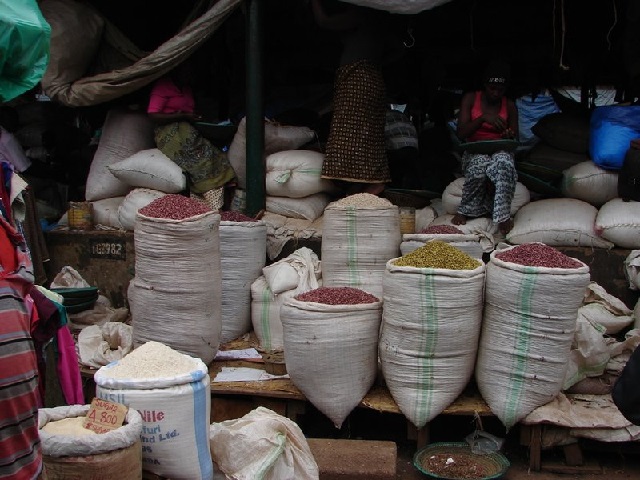
Gulu, Uganda | THE INDEPENDENT | Prices of cereal crops have risen to a record high in Gulu city and other neighboring districts of Acholi. The price increment comes against the backdrop of a prolonged drought that affected the production of crops in the first farming season.
Prices of cereal crops like beans, maize, ground nuts, soybeans, and sesame (Sim sim), among others have risen sharply with others nearly doubling in markets within Gulu city as traders blame a shortage in their supply.
Alfred Ojok, the chairperson of produce dealers at Cerelenu market in Gulu city says the increment in cereal prices this time is the highest they have registered as traders.
Ojok says retail prices of beans per kilogram at the market now range between 4,000 shillings and 5,000 shillings for various types from 2,800 shillings and 3,800 shillings.
He adds that different types of groundnuts have also risen sharply from 4,000 shillings a kilogram to between 6,000 and 8,000 shillings while maize grain rose from 1,000 shillings to 3,000 shillings a kilogram.
Ojok faulted the skyrocketing price of cereals on the prolonged drought which has affected supplies in the region. He says high prices have scared away their customers leaving them to earn little in profits for their business.
Grace Atimango, a vendor who deals in peanut butter says the high prices of groundnuts have affected her business citing that her customers are complaining of the reduction in the quantity that she sells. She says unlike in the past when they used to buy ground nuts at only 4,000 shillings, the price has currently nearly doubled to 7,000 shillings.
Atimango also notes that back at home, the high prices have impacted negatively on their choice of food and quantity of what to consume. She says although the family spends a high amount of money, the quantity of food purchased is little and always not enough.
Patrick Oola, another vendor at Cerelenu market says due to the low supply of cereal crops within the region and the country, they have opted to purchase some of the produces from other countries.
Oola notes that some of the ground nuts and beans they are currently selling are purchased from Tanzania and Malawi arguing that the high cost of transportation makes them hike prices to get profits.
He says the current high fuel prices and bad weather that was experienced in the region have had a negative impact on transportation and production of crops which culminates in an increase in the prices of crops.
Oola predicts that the prices of food crops may rise further in the coming months owing to a combination of factors including continuing rising fuel prices and bad weather.
The long dry spell that lasted for nearly three months between the farming season of May and August this year devastated agricultural projects across the country leaving farmers at loss and families with little food stock.
The Famine Early Warning Systems Network (FEW-NET), a leading provider of early warning and analysis on food insecurity in July this year reported that high demands from the regional markets in Kenya and South Sudan had impacted on prices of staples in the country.
According to the report, from January to June, the price of beans had increased by 22 percent in Eastern Uganda, 32-47 percent in northern Uganda, and 20-31 percent in western Uganda. The report also indicated the retail price of maize grain increased 30-47 percent across the eastern, northern, and western regions.
*****
URN
 The Independent Uganda: You get the Truth we Pay the Price
The Independent Uganda: You get the Truth we Pay the Price





